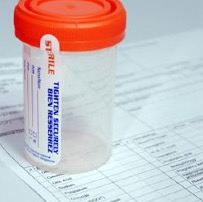What Happens When An Injured Worker Has A Positive Drug Screen

Many employers promote a drug free work environment in order to reduce insurance costs and minimize any possibility of someone being under the influence of alcohol or drugs that can lead to on the job injuries. In order to maintain a drug free work environment, routine drug screens take place throughout his or her employment but more importantly, a drug screen always happens after an on the job injury. The Employer is entitled to know if the influence of alcohol or drugs contributed to the accident in any way. If the results are positive, the Employer/Insurer can use the positive drug screen as a basis for denying any claim for workers’ compensation made by the injured worker. This is called a rebuttable presumption. It is rebuttable since just being intoxicated is not enough. There must be a link between the intoxication and the cause of the accident. Without this link, the intoxication cannot serve as a basis for denial of the claim. There are important rules regarding the timeliness of how to conduct the drug screen and if those rules are not complied with, then the Employer/Insurer loses the presumption that the accident occurred because of the drugs or alcohol. The rules are outlined in O.C.G.A. § 334-9-17(b)(1) and (2). If the test is positive, then the sample has to be taken within 3 hours of the accident for alcohol or 8 hours of the accident for drugs. If the samples are taken timely and the results are positive, then the rebuttable presumption is given to the Employer/Insurer that the injured worker was intoxicated and the intoxication led to the accident. If the test is not timely, then the Employer/Insurer has to prove to the court that the claimant was intoxicated and that the intoxication caused the accident. The rebuttable presumption eliminates that burden of proof requirement so the timeliness of the test is absolutely important. If the accident would have occurred no matter whether the person was intoxicated or not, then the intoxication is irrelevant. For example, a construction crew is working on the roof of a building installing new shingles. The roof collapses and the entire crew falls. The injured worker has broken his leg in the fall but his drug screen was timely done and was positive for marijuana. Though the rebuttable presumption is there, it is clear that the roof collapse was the cause of the injuries sustained by the injured worker. His marijuana drug screen is irrelevant. He would have fallen no matter whether he was high as a kite or drunk as a skunk. In this case, the positive drug screen played no role in the cause of the accident and cannot serve as a basis for the denial of his claim. So what can we learn from this? (1) Don’t use drugs or alcohol and don’t attempt to work if you have used. It can lead to your death or substantial injuries that your Employer may not have to cover because of your intoxication. (2) Don’t refuse to take the drug screen simply because you are worried about the results. A refusal to submit to the drug screen can cause your claim to be denied as well. (3) Be cautious and careful about work, but don’t be afraid to use common sense. (4) Follow the safety rules given by your Employer because they are there for a reason.
